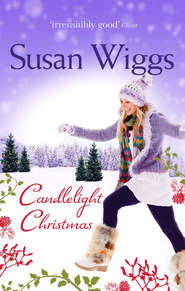По всем вопросам обращайтесь на: info@litportal.ru
(©) 2003-2025.
✖
The Charm School
Автор
Год написания книги
2019
Настройки чтения
Размер шрифта
Высота строк
Поля
is dedicated to you, to all of you, in gratitude for
bringing books and readers together.
Contents
Acknowledgments
Part One: The Ugly Duckling
Chapter One
Chapter Two
Chapter Three
Chapter Four
Chapter Five
Part Two: The Bird of Passage
Chapter Six
Chapter Seven
Chapter Eight
Chapter Nine
Chapter Ten
Chapter Eleven
Chapter Twelve
Chapter Thirteen
Chapter Fourteen
Chapter Fifteen
Chapter Sixteen
Chapter Seventeen
Chapter Eighteen
Chapter Nineteen
Part Three: The Bird of Winter
Chapter Twenty
Chapter Twenty-One
Chapter Twenty-Two
Part Four: The Swan
Chapter Twenty-Three
Chapter Twenty-Four
Chapter Twenty-Five
Chapter Twenty-Six
Afterword
ACKNOWLEDGMENTS
Thanks to the usual suspects: Joyce, Alice, Christina, Betty and Barb. Also to Jill, Kristin and Debbie, who make this business much less isolating. Thanks also to my editors, Dianne Moggy and Amy Moore-Benson, who helped to shape this work with sensitivity and finesse. The passages from
Hans Christian Andersen’s The Ugly Duckling (translated from the Danish by Jean Hersholt) are drawn from copy number 1990 of the 2500 Limited Editions Club, copyright 1942 for the George Macy Companies, Inc. The author humbly acknowledges her debt to the wisdom of the great storyteller, who wrote “Being born in a duck yard does not matter, if only you are hatched from a swan’s egg.”
Part One
The Ugly Duckling
“What nice little children you do have, mother,” said the old duck with the rag around her leg. “They are all pretty except that one. He didn’t come out so well. It’s a pity you can’t hatch him again.”
And the poor duckling who had been the last one out of his egg, and who looked so ugly, was pecked and pushed about and made fun of by the ducks, and the chickens as well. “He’s too big,” said they all. The turkey gobbler, who thought himself an emperor because he was born wearing spurs, puffed up like a ship under full sail and bore down upon him, gobbling and gobbling until he was red in the face. The poor duckling did not know where he dared stand or where he dared walk. He was so sad because he was so desperately ugly, and because he was the laughingstock of the whole barnyard.
When morning came, the wild ducks flew up to have a look at the duckling. “What sort of creature are you?” they asked, as the duckling turned in all directions, bowing his best to them all. “You are terribly ugly,” they told him, “but that’s nothing to us so long as you don’t marry into our family.”
—Hans Christian Andersen,
The Ugly Duckling (1843)
One
The real offense, as she ultimately perceived, was her having a mind of her own at all.
—Henry James,
The Portrait of a Lady
Boston, October 1851













